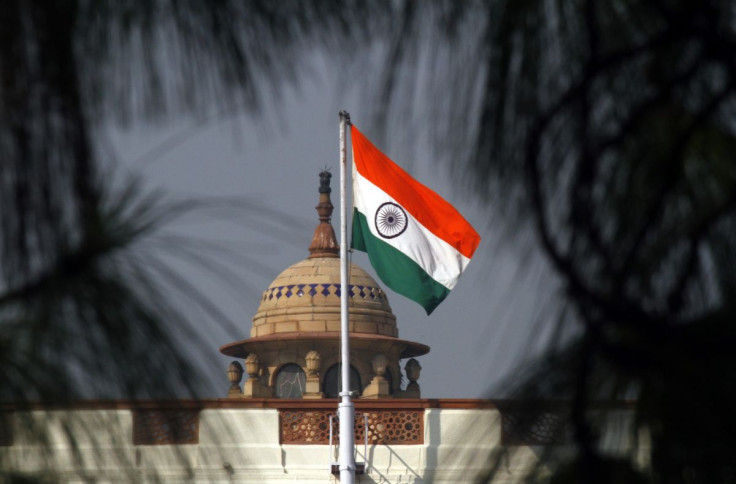India-UK Trade Talks: Indian Foreign Minister Hopes To Find 'Landing Point' That Benefits Both Sides

KEY POINTS
- India's External Affairs Minister S Jaishankar said they are working to find a "landing point" that works for both sides
- Jaishankar had talks with his British counterpart, newly-appointed UK Foreign Secretary David Cameron
- The two countries are expected to agree on a final deal before the general elections in their respective countries in 2024
India and the U.K. have reportedly streamlined their focus on a free trade agreement and are working toward finding a "landing point" that will work for both economic powerhouses.
Following long-drawn-out negotiations on the trade deal, India's External Affairs Minister S Jaishankar is currently on a five-day official visit to the U.K. and has met Prime Minister Rishi Sunak, the newly-appointed UK Foreign Secretary David Cameron and others.
Delighted to call on Prime Minister @RishiSunak on #Diwali Day. Conveyed the best wishes of PM @narendramodi.
— Dr. S. Jaishankar (@DrSJaishankar) November 12, 2023
India and UK are actively engaged in reframing the relationship for contemporary times.
Thank Mr. and Mrs. Sunak for their warm reception and gracious hospitality. pic.twitter.com/p37OLqC40N
"Today, to realize the Agenda 2030, we are focusing on what is officially called an Enhanced Trade Partnership, in common terms it's called an FTA or free trade agreement. That is today very much the focus of what the Indian and British systems are negotiating. We hope that we will find a landing point that works for both of us," Jaishankar said Monday, while addressing a special Diwali Reception organized by the High Commission of India at Westminster Hall near the Houses of Parliament in London.
"India and the UK have a long history and a very complex history. What we are trying to do is to make history a positive force with our commonalities, shared practices and institutions... to make history work for us," he added.
A pleasure to meet UK Foreign Secretary @David_Cameron this afternoon on his first day in office. Congratulated him on his appointment.
— Dr. S. Jaishankar (@DrSJaishankar) November 13, 2023
Held a detailed discussion on realizing the full potential of our strategic partnership.
Also exchanged views on the situation in West Asia,… pic.twitter.com/guxyCxLuRM
India and the U.K., which agreed to a new and transformational Comprehensive Strategic Partnership in 2021, saw a bilateral trade of £36.3 billion ($44.61 billion) during the financial year (FY) of 2022-23. India was the U.K.'s 12th largest trading partner during this period, with trade increasing by 34.2% or £9.2 billion ($11.3 billion) from FY 2021-22.
The two sides have been hammering out a free trade agreement since January last year, and already missed a deadline for concluding the trade deal by Diwali in the autumn of 2022.
The talks have undergone 13 rounds of negotiations, and are now reportedly in its most complex phase. Although uncertainty still surrounds the timeline for the conclusion of the India-U.K. FTA, both sides would want to agree on a final deal before the general elections in their respective countries in 2024.
The trade deal is very important for both the U.K. and India, and both sides are "invested very deeply," Harsh V. Pant, author and Vice President--Studies and Foreign Policy at Observer Research Foundation, New Delhi, previously told International Business Times.
"For the U.K., this would be a major deal post-Brexit with a very big economy like India" whereas for the Asian country, which "has not signed very many trade deals, this is likely to be one of the most comprehensive ones compared to the interim agreements India has signed with Australia," Pant said.
With textile being India's most important export product to the U.K., the FTA could offer increased competitiveness to Indian textile products as they compete with the textile industries of other South Asian nations. Countries like Pakistan, Bangladesh and Sri Lanka enjoy free access to the British market under the U.K.'s Generalized Scheme of Preference, but such tariff concessions are not applicable to India.
The U.K. currently levies a 10-12% import duty on Indian textile products like women's clothing, shirts, bed-linen, and more. A successful FTA would mean these exports from India would also see benefits.
The U.K. also hopes to increase exports to India through the deal, with a particular eye on the automobile and whiskey segments.
India is among the world's biggest buyers of Scotch whiskey by volume, with export volumes surging by more than 200% over the past decade. Bottled whiskey imports from the U.K. to the country more than doubled from $152 million to $316 million. However, India charges 150% import tariff on each bottle of Scotch whiskey.
As the U.K. currently faces large tariffs on whiskey exports, it is forced to charge slap higher prices on these products when they are finally sold to Indian consumers. Thus, the long-awaited trade deal could benefit U.K.'s whiskey exports to India.
Moreover, with India being one of the fastest-growing markets in automobiles, including the EV segment as well, the U.K. also has much to gain if duties are slashed on cars.
India has shown willingness to cut down the import duty on cars and whiskey, and, in return, New Delhi hopes that the U.K. would relax visa rules for Indians as well.
New Delhi is willing to bring down tariffs, but "will also have to ensure that its own domestic industry does not suffer, especially at a time when Indian policymakers are looking to expand India's own domestic manufacturing base," Pant added.
© Copyright IBTimes 2025. All rights reserved.






















